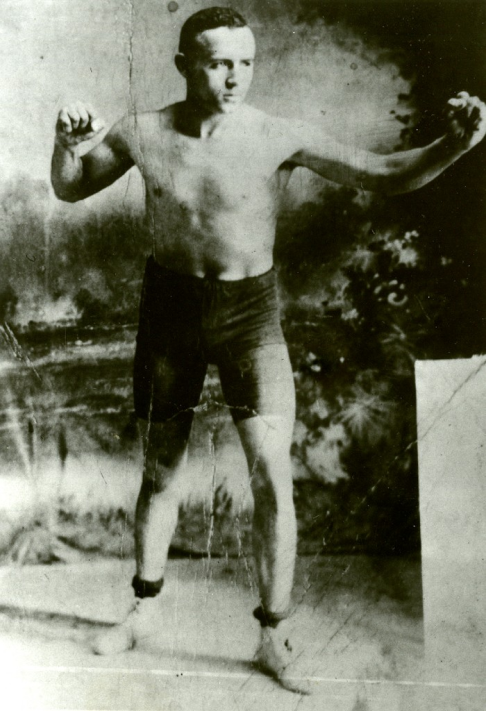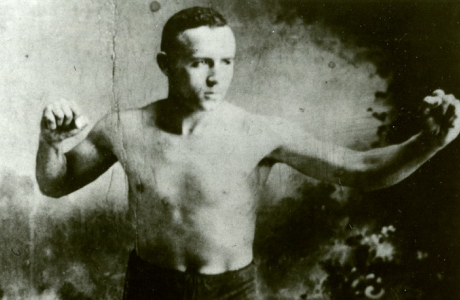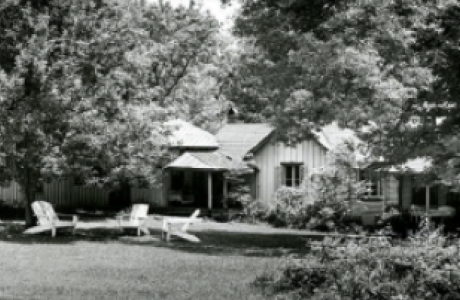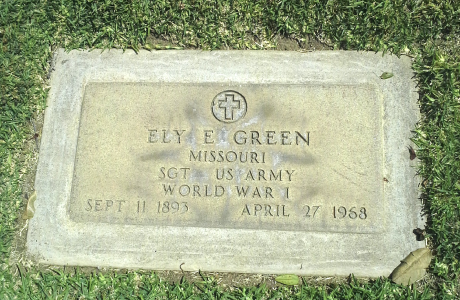
About the
Author

Ely (pronounced “ee-lee”) Green was born in Sewanee, Tennessee in 1893 to Lena Green, a Black domestic servant in a white household, where she became pregnant with Green as a teenager. It was common knowledge in Sewanee at the time that a son in that household (Edward Wicks), much older than Green’s mother, sexually abused her. Green writes in his manuscript that his mother was seventeen at the time of his birth, but according to Arthur Ben Chitty in a letter to an editor at the University of Massachusetts Press, Green told him that she was fourteen at the time. The reason for this discrepancy is unknown, but possibilities range from Green wanting to protect his mother’s privacy to his being all too aware of the sensibilities of the kind of readership to which his book would be marketed. Yet, while Chitty exercised discretion in changing the family name of Green’s father, he encouraged the University of Massachusetts Press to change her age to fourteen. The Press must have decided to represent the age as Green wrote it, as they kept it as seventeen. Decades later, Chitty would note her age as fourteen in his 1999 entry for Green in Oxford University Press’s American National Biography. Furthermore, in publicity surrounding the publications throughout the years, Green’s mother is named but never his father.
Green’s mother died when he was eight years old and he was taken in by his foster mother, whom he affectionately called “Mama Mat.” He was treated informally as a ward of the local Episcopal church and the University of the South. Bishops routinely hosted Green in their homes and often showered him with life advice, much of which amounted to encouraging Green to abide by the color line, to keep his head down, and to not challenge the racial hierarchy that ruled the mountain’s domain and beyond. Sewanee was mostly composed of the ruling class of white elites and their employed Black servants. Poor whites also worked on the mountain but were not preferred over Black workers when it came to keeping up the University domain and its white residents.
Despite several half-hearted attempts by white Sewanee elites to educate Green, he only received six months or so of formal schooling. It was through his own desire and will that he was able to learn to read and write, adapt and survive. Green’s earliest aspirations were dashed: As a biracial child, he was excluded from pursuing his boyhood dream of becoming a Sewanee cadet. He soon learned that he had to prepare himself for making his own way in life, and accrued an impressive number of skills as he came of age, including shooting, hunting, trapping, any foraging—tasks involving anything upon which he could capitalize in his natural environment. Many of his talents he learned while in his grandfather’s tutelage. Grandpa Ned, born into slavery and emancipated in his youth, encouraged Green to be self-sufficient, to always keep cash, and to live as detached from society as possible.
His entrepreneurial spirit led to an impressive amount of wealth in his teenage years, as he was able to sell animal skins for large sums that supported himself, Mama Mat, and her other children. success became the envy of rival white hunter-trappers, who eventually chased him off the mountain. During his final year or so in Sewanee, Green sired two daughters from whom he remained largely estranged for most of his life. Green does little to detail their existence or any subsequent relationship with them in his manuscript. His flight from Sewanee was his first step in a lifelong schism from parenthood, a complicated aspect of his character that could be attributed to his own estrangement from family having spent most of his childhood orphaned and self-dependent.
Green’s flight was largely due to the immediate threat of racial violence, something he unfortunately faced often in his life. He resettled in Waxahachie, Texas, where—after several years of living comfortably as the chauffer to an affluent judge and then serving in the First World War—he was threatened by the Ku Klux Klan and had to flee, yet again, to California. During his time as a soldier, he also faced the risk of execution for a mutiny that he attempted to stop (rather than encourage for which he was accused). He hoped his service to his country would render him a full citizen, but he endured racial discrimination throughout his life. In the full autobiography, Green recalls his key ambition upon enlisting: “I am going to fight to change the statute of law of the United States government, to abolish the word 'negro,' which is the name of a slave. This is why I have to go to France, when I come back I will be an American citizen. No one can represent the United States on foreign soil but a man. I will be a man.” To his dismay, Green faced racism throughout his time in France and upon his return to the United States. In the decades that followed, he was a man of many hats and talents. Most significantly and at the summons of Eleanor Rooseveltherself, Green served as a Black activist successfully integrating multiple Lockheed plants. He went on to work a range of odd jobs during the rest of his life in California. At times, he was a butler to wealthy white families (including the Barrymores of Hollywood), at others he was private detective, and still others a rum runner for the Italian mafia.
He returned to Sewanee at the end of his life to share his manuscript with the Chittys. He had received word from his half-brother, a custodian at the University, that a historiographer and his wife were interested in collecting Black stories from Sewanee locals. Sadly, Green’s health declined rapidly after he delivered his handwritten pages, so he was unable to participate in any meaningful way in the transcription and editing of his work. Before his death in 2968, he was able to attend a book signing at the University for the 1966 Seabury Press edition, Ely: An Autobiography, which printed a heavily edited, novelized version of the Sewanee years of the manuscript.
Timeline

1893
Green was born in Sewanee, TN. His mother, Lena Green, was a teenage domestic servant, and his father, Edward Wicks, whose identity was kept from Green, was a white son in the household where she worked.

1912
Green boards a train at the Cowan, Tennessee train station and passes for white on a rail system that would eventually take him to Waxahatchie, Texas.

1912-1918
Green becomes the personal chauffeur to–and is informally adopted into the family of–Judge Oscar Dunlap.

1917
Baseball legend Ty Cobb tries to persuade Green to become a professional boxer

1918
As a WWI sergeant, Green faces court martial and possible execution for protecting his men from racist officers.

1924-1945
Becomes a bootlegger during Hollywood’s golden age; During WWII, Green is commissioned by Eleanor Roosevelt to break the color line at Lockheed, an American aerospace manufacturer.

1964
Returns to Sewanee with handwritten pages of his autobiography in a suitcase

1968
After delivering the manuscript, his health declined and he passed away on April 27, 1968



